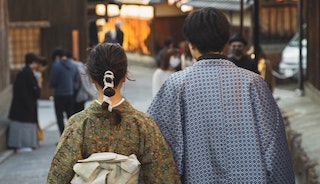FUKUOKA, Apr 28 (News On Japan) - A 12-year-old girl living with Apert syndrome, a rare condition that causes abnormalities in bones and joints, is pouring her passion into the piano. Having overcome daily challenges through her own ingenuity, she shares the feelings she pours into her music.
Her hands are smaller than average, and her finger joints cannot bend, but her determination has enabled her to perform pieces like Mozart’s with confidence.
On April 5th, a family gathering for children with Apert syndrome was held for the first time in Fukuoka Prefecture. Among the attendees was Haruka Murayama, who at the age of one underwent major surgeries to separate her fused fingers, eventually achieving five fingers on each hand. Apert syndrome affects about one in 150,000 people, with only a handful of cases diagnosed annually. The disorder’s root causes and mechanisms remain largely unknown. At just six months old, Murayama endured a major operation involving the removal and reconstruction of parts of her skull, and she has since undergone seven surgeries in total. While her fingers were separated, the absence of second joints means she cannot bend them, making everyday tasks like wringing a cloth difficult.
Murayama’s resilience is supported by her love of music, which she discovered through her mother’s influence when she was four years old. Through steady practice at a music school, she honed her skills, even winning prizes at national competitions. Because her hands cannot span the same distance as others, she developed an original style of playing, using both hands to cover notes intended for one. In some songs, she cleverly uses musical rests to shift between hands, covering the left-hand part with her right when necessary. She believes that even when different people play the same piece, the music is never the same because everyone brings their own heart, mind, and body to the performance. Murayama’s goal is to share a sound that only her fingers can create.
This spring, as she graduated from elementary school, Murayama gave herself a major challenge: performing a two-hour solo concert. During the concert, she also took the stage to speak openly about her condition, explaining to the audience that she was born with Apert syndrome and wanted more people to understand the disease. Her solo concert on March 29th drew over 100 attendees, and she performed ten pieces over two hours, filling the hall with the sound of her small but determined hands.
Murayama’s words resonated with the audience as she explained that although her bones and joints differ from others, and her fingers are short and cannot bend, she continues to work hard and hopes for their support. After the concert, she said she had shared everything she had practiced and described the experience as fun. She expressed her hope that more people would learn about Apert syndrome and said the piano has become like a close friend, always by her side.
Source: FBS福岡放送ニュース















